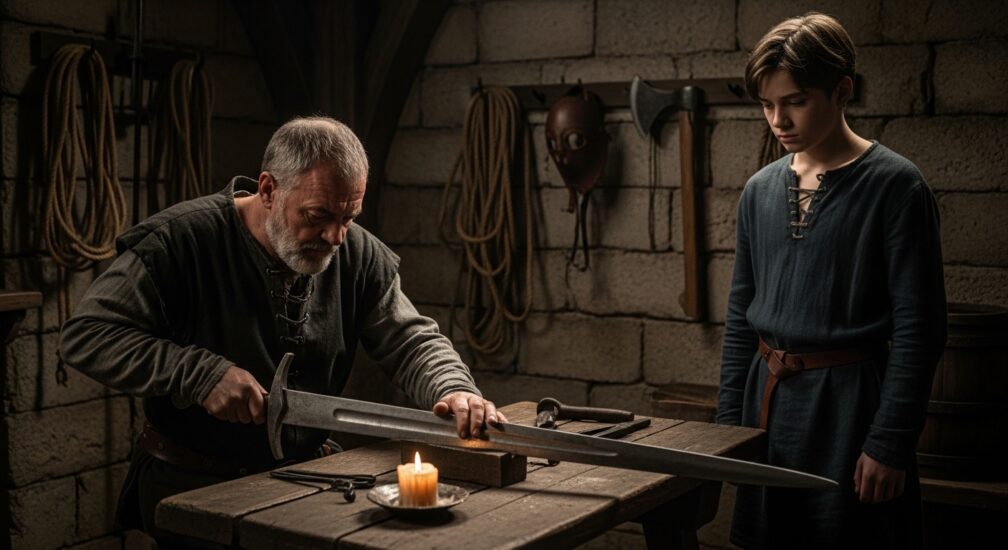Being part of an executioner’s family was fraught with social stigma and isolation. The legacy of the executioner profession carried with it a profound sense of shame and social exclusion, affecting not just the individual but also their children and descendants. This article delves into the life of executioners’ children, exploring how their lives were shaped by their family’s role in society and the challenges they faced due to their lineage.
The Executioner’s Duty and Its Legacy
The position of executioner wasn’t just a job – it was a family tradition, passed down through generations. The executioner’s duties were deeply intertwined with societal rejection, and the profession carried a heavy social stigma. Executioners and their families were often cut off from their communities, forced to live on the margins, and branded with the legacy of their profession. The reputation of executioners was tarnished, and their families were often ostracized.
Despite this, the role of the executioner was often a hereditary profession, deeply ingrained in the culture of justice. The children of executioners were expected to follow in their parents’ footsteps, carrying the burden of guilt and shame that came with the profession. These families were often isolated, both emotionally and physically, from the wider community.
The Impact on Executioner’s Families
The social exclusion of executioners wasn’t limited to the individual. It extended to their families, who lived in the shadow of the executioner’s reputation. The children of executioners were often marked by the same stigma, growing up in an environment where their family’s heritage was a source of social rejection. The impact on executioner’s families was profound, affecting their social reputation and making it difficult to form connections with others.
Despite the challenges, many executioner families maintained their traditions and passed on the occupation through generations. The role of executioner became an inherited duty, often seen as a way of survival within their isolated communities.
The Role of Tradition and Isolation
For many executioner families, the legacy of their profession was a heavy inheritance. The job was more than just a means of income – it was a cultural role bound by tradition and carried immense personal sacrifice. The isolation faced by these families was both physical and emotional, as they were rejected by society due to their occupation. This persecution was passed down to their children, who inherited not just the profession but the social exclusion that came with it.
The guilt associated with the job also permeated the family life. Executioners were often seen as agents of violence, even though they were carrying out the law. This perception created a difficult environment for their families, who were forced to live with the stigma of the profession.
Breaking the Cycle: The Persistence of Executioner Families
Despite the social and emotional toll, many executioner families continued their legacy for generations. This wasn’t necessarily out of pride but out of duty and necessity. The job was often passed down within the family, making it hard to break free from the legacy of isolation and rejection. However, this persistence also allowed executioner families to develop their own sense of community, one that was separate from mainstream society but nonetheless deeply connected by shared traditions.
The Modern Reflection: Revisiting the Legacy
The legacy of executioner families still reverberates today, particularly in discussions about the evolution of punishment and justice. While executioners are no longer a common profession, the impact of their social exclusion and the burden carried by their families remains an important lesson. The social exclusion of executioners highlights the broader issues of societal stigma and the ways in which professions – no matter how necessary – can lead to unfair persecution.
As we reflect on this dark chapter in history, we can draw parallels to modern-day issues of social stigma and exclusion, ensuring that the lessons of the past inform our understanding of justice today.
To learn more about the history of punishment and its societal impacts, visit the Medieval Torture Museum in Chicago, Illinois, or explore the exhibits at our Medieval Torture Museum in LA and Saint Augustine locations. For more insights into the evolving history of justice and human rights, check out our blog.
The story of executioner families is not just a chapter in the history of punishment, but a powerful reminder of the enduring consequences of social exclusion and the importance of human dignity in the fight for justice.





